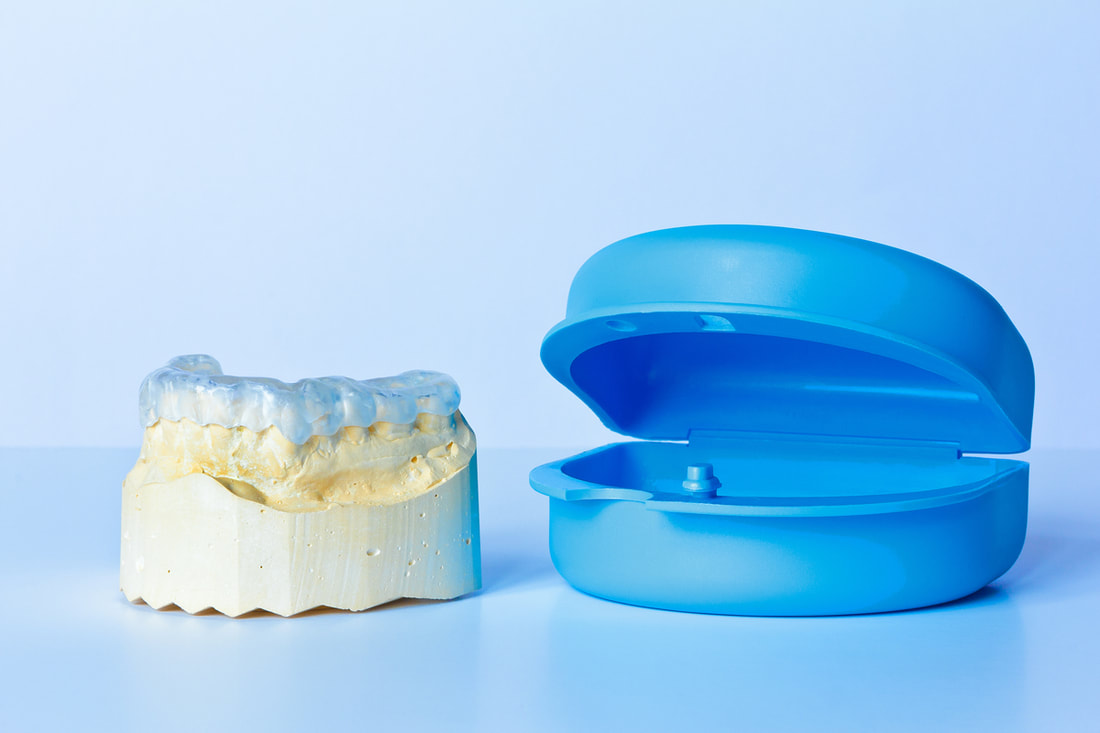But one of the most common elements to an anti-teeth grinding treatment plan is the wearing of a dental mouth guard, especially at night when most teeth grinding typically occurs.
Dental Mouth Guards: General Considerations
Before we look at the three main types of dental mouth guards for bruxism, here are a few more general points to consider.
First of all, you normally wear a mouthguard for only the upper OR lower jaw. Most people prefer a lower jaw guard because they find it more comfortable to wear. But if you have missing teeth or dental work on your lower jaw, you should probably opt for an upper jaw mouth guard instead.
Secondly, you need to have a dental mouth guard that is custom-fit for your particular mouth. One size definitely does not fit all in this case.
Dental mouth guards are much more precisely fit than sports mouth guards, and your periodontist can arrange for you a perfect fit that will be more comfortable and durable than anything you can buy over the counter.
Third, if you grind your teeth during the day as well as at night, you may want to buy two mouth guards. Otherwise, you might wear the guard down too fast or you might misplace it during the day and have nothing to wear at night.
3 Basic Types Of Mouth Guards For Teeth Grinding
Most mouthguards are made out of some type of acrylic material, and they’re all custom-fit if you get them through a dental practitioner.
The main choice you have to make, then, is whether you want a soft, hard, or double laminate dental mouth guard.
The most common type is the soft plastic mouth guard. This type is more flexible and most comfortable for most people to wear. It’s also easier to be “chewed on,” however, and may not adequately discourage extreme grinders. Plus, it has a shorter life span than the other two types. Soft is best for moderate teeth grinding at most.
Hard acrylic mouth guards are typically prescribed to those with more severe bruxism and/or to those who have or seem to be developing TMJ disorder. Hard guards are sometimes attached to the teeth with metal clasps, and they give little room to grind your teeth. They are more durable, but less flexible, then their soft plastic equivalents.
A somewhat recent innovation, double laminated dental mouth guards combine a hard outer layer with a soft inner layer. They give you the best of both worlds, and they have the highest customer satisfaction rates. However, you can’t soak these double-laminate guards overnight – you have to keep them dry between uses to prevent the two layers from separating.
If you suffer from chronic teeth grinding and want to learn more on how to treat the condition, or on which type of dental mouth guard to use, contact Dr. Raymond A. Kenzik in Ormond Beach, FL, today!
